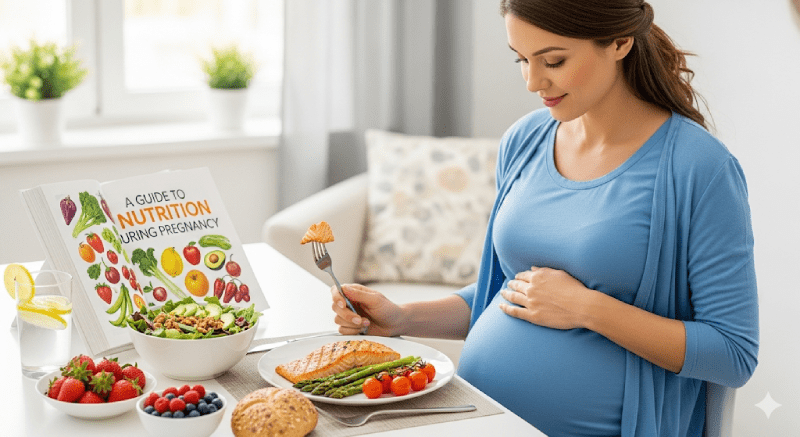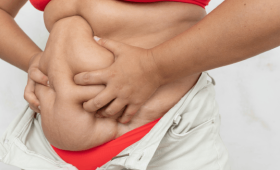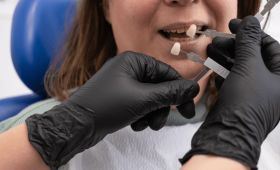Should a special nutrition plan be followed for fertility?
Yes, it is very important to follow a special nutrition plan to increase fertility. This plan helps the body achieve hormonal balance and improves egg and sperm quality. A Mediterranean-style diet is generally recommended. This diet includes fresh vegetables, fruits, whole grains, healthy fats, and protein sources. The goal of the diet is to reduce inflammation in the body and provide the necessary vitamins and minerals for reproductive health.
Which foods increase fertility?
Dark green leafy vegetables like spinach, kale, and broccoli are rich in folic acid and iron. Healthy fats such as avocado, olive oil, and nuts support hormonal production. Fruits loaded with antioxidants, like blackberries, strawberries, and raspberries, protect reproductive cells. In addition, legumes like lentils and chickpeas, and whole grains, help lower insulin resistance and maintain hormonal balance.
Which foods should be avoided?
There are certain foods and drinks that can negatively affect fertility. Processed foods, fast food, and fried foods that contain trans fats can disrupt hormonal balance. Sugary carbonated drinks and sweets can increase insulin resistance. It is also recommended to stay away from large fish with high mercury content (such as swordfish, king mackerel) and excessive caffeine and alcohol consumption.
Why is folic acid so important?
Folic acid (Vitamin B9) is one of the most important nutrients before and during the early stages of pregnancy. It plays a vital role in cell division and DNA synthesis in the body. Adequate folic acid intake significantly reduces the risk of neural tube defects, which can negatively affect the baby’s brain and spinal development. Therefore, it is strongly recommended that all women planning a pregnancy take a folic acid supplement.
What is the effect of iron deficiency on fertility?
Iron is necessary for the blood’s oxygen-carrying capacity and is of great importance for female reproductive health. Iron-deficiency anemia can lead to irregular or absent ovulation. Iron deficiency is common in women, especially due to blood loss during the menstrual cycle. Adequate iron intake supports a healthy menstrual cycle and overall reproductive functions.
What is the importance of Omega-3 fatty acids?
Omega-3 fatty acids play a key role in hormone production, egg quality, and overall reproductive health. They help the body create a healthier reproductive environment by reducing inflammation. Fatty fish like salmon and sardines, walnuts, and flaxseeds are good sources of omega-3. These healthy fats have a fertility-boosting effect in both women and men.
What foods increase sperm quality in men?
To increase sperm quality in men, foods rich in antioxidants, zinc, selenium, and folic acid should be consumed. These include pumpkin seeds, oysters, asparagus, and red meat. Whole wheat and wholegrain cereals are also important for sperm health. At the same time, foods containing Vitamin C, Vitamin E, and lycopene, such as tomatoes, also support sperm motility.
What foods increase egg quality in women?
To increase egg quality, foods rich in antioxidants, folic acid, Vitamin B12, zinc, and iron should be consumed. Dark green leafy vegetables, legumes, and whole grains are sources of folic acid. Foods like fatty fish and walnuts contain omega-3 fatty acids. Eggs, being rich in protein and vitamins, support egg quality.
Does caffeine consumption affect fertility?
Excessive caffeine consumption can negatively affect fertility. An intake of more than 200 mg of caffeine per day (equivalent to about 1-2 cups of coffee) can reduce the chances of conception and may lead to miscarriage. It is thought that caffeine can narrow blood vessels, reducing blood flow to the reproductive organs. Therefore, it is recommended that couples planning a pregnancy limit their caffeine intake.
Does alcohol consumption affect fertility?
Yes, alcohol consumption negatively affects fertility in both women and men. In women, alcohol can disrupt hormonal balance and cause menstrual irregularities. In men, it can reduce sperm quality and count. Completely quitting alcohol during the pregnancy planning period is the safest and most effective way to increase the chances of conception.
What is the effect of sugary foods on fertility?
Sugary foods and refined carbohydrates rapidly increase blood sugar, raising insulin levels. This can lead to hormonal imbalance and ovulation problems. Insulin resistance is one of the main causes of fertility problems, especially in women with polycystic ovary syndrome (PCOS). For a healthy diet, sugary foods should be avoided.
How does body weight affect fertility?
Both being overweight and underweight have negative effects on fertility. Excessive weight can lead to hormonal imbalance and ovulation problems. Having a very low body fat percentage can cause the menstrual cycle to stop. Being at an ideal weight helps maintain hormonal balance and a healthy reproductive cycle.
Are vegan or vegetarian diets suitable for fertility?
Vegan or vegetarian diets can be suitable for fertility if they are planned correctly. However, it is important for individuals following these diets to ensure they get enough nutrients like iron, Vitamin B12, zinc, and omega-3. These nutrients are generally found in higher amounts in animal sources. Therefore, a special effort is required to use supplements or get these nutrients from plant-based sources.
How do dairy products affect fertility?
The effect of dairy products on fertility is debatable. While full-fat dairy products support ovarian function, excessive consumption can lead to hormonal imbalance in some women. It may be more beneficial to consume dairy products in a balanced way and prefer full-fat options over low-fat ones.
Is gluten a risk for fertility?
For individuals with celiac disease or gluten sensitivity, gluten consumption can cause intestinal damage and nutrient absorption problems. This can lead to deficiencies in vitamins and minerals that are important for fertility. However, there is no definitive evidence that gluten has a negative effect on fertility for individuals without such a sensitivity.
Why is drinking enough water important?
Adequate water consumption is vital for the body’s overall health. Dehydration can reduce the quality of cervical mucus, which can make it difficult for sperm to reach the uterus. Staying hydrated supports blood circulation and the maintenance of hormonal balance. Therefore, it is important to drink at least 8-10 glasses of water per day.
How do antioxidants support fertility?
Antioxidants fight against free radicals that damage cells in the body. These radicals can harm the DNA of egg and sperm cells. Antioxidants like Vitamin C, Vitamin E, selenium, and zinc protect the health of reproductive cells, increasing the chances of conception. Fruits, vegetables, nuts, and seeds are rich in antioxidants.
Why is Vitamin E important for fertility?
Vitamin E is a powerful antioxidant that protects reproductive cells from oxidative stress. It supports sperm motility and quality in men, and egg health in women. Foods like almonds, sunflower seeds, spinach, and avocado are good sources of Vitamin E.
What is the role of zinc and selenium in fertility?
Zinc and selenium are minerals that are critically important for both male and female fertility. Zinc plays a role in sperm production and the balance of male reproductive hormones. Selenium is a powerful antioxidant that helps protect both sperm and egg cells. These minerals are found in foods like meat, fish, pumpkin seeds, and Brazil nuts.

What is the effect of processed foods on fertility?
Processed and prepared foods often contain trans fats, high-fructose corn syrup, and artificial additives. These components can increase inflammation in the body, disrupt hormonal balance, and lead to insulin resistance. Regular consumption can also hinder the absorption of nutrients necessary for reproductive health.
Is fish consumption safe for fertility?
Fish is a rich source of omega-3 fatty acids and protein. However, it is important to avoid large fish with high mercury content. Smaller fish like tuna, salmon, and sardines are safe and beneficial options for a fertility diet. It is recommended to consume 2-3 servings per week.
Are nutritional supplements necessary?
Nutritional supplements may be necessary for individuals planning for fertility. Supplements such as folic acid, Vitamin D, omega-3, and iron are recommended, especially when they cannot be obtained in sufficient amounts from the diet. However, it is crucial to consult a doctor or a nutritionist before using any supplements.
Does the temperature of foods affect fertility?
The temperature of foods does not have a direct effect on fertility. However, some studies show that hot baths or being in hot environments can negatively affect sperm quality in men. Therefore, it is more important to pay attention to the environmental temperature rather than the temperature of foods.
How should carbohydrate consumption be for fertility?
For fertility, complex carbohydrates should be preferred over refined carbohydrates. Foods like whole grains, oatmeal, brown rice, and vegetables slowly raise blood sugar, keeping insulin levels under control. This helps maintain hormonal balance.
What is the role of protein intake in fertility?
Protein is the building block of hormones and reproductive cells. Adequate protein intake is critical for fertility in both women and men. In addition to animal proteins like red meat, chicken, and fish, plant-based proteins like lentils, chickpeas, and tofu should also be included in the diet. A balanced protein intake ensures the reproductive system functions healthily.
What are the benefits of fibrous foods for fertility?
Fibrous foods ensure the digestive system works regularly, helping the body to eliminate toxins. They also balance blood sugar, preventing hormonal imbalance. Fibrous foods like whole grains, fruits, and vegetables are an important component of a fertility diet.
Why is the freshness of foods important?
Fresh foods are richer in vitamins, minerals, and antioxidants. Processed and long-stored foods can lose these nutritional values. Therefore, when creating a nutrition plan for fertility, it is important to prefer fresh and seasonal foods as much as possible.
Is it necessary to work with a nutritionist?
Yes, working with a nutritionist can help you create a personalized plan for fertility. The specialist will prepare a diet plan according to your body’s needs, determine any nutrient deficiencies, and recommend the correct supplements. This can guide you on your fertility journey.
What is the effect of stress on nutrition and fertility?
High stress levels can negatively affect eating habits and lead to a preference for unhealthy foods. Stress can directly affect fertility by leading to hormonal imbalance. Stress management through regular exercise and conscious nutrition is an important factor in achieving your fertility goals.
How should those with irregular periods eat?
Irregular periods can be a sign of hormonal imbalance. In this case, a nutrition plan aimed at reducing insulin resistance should be followed. A diet rich in complex carbohydrates, healthy fats, and protein is recommended. Avoiding sugary and processed foods can help achieve hormonal balance.
If you’re planning or trying to get pregnant, these 20 foods can help you.
- Salmon. Salmon is rich in healthy omega-3 fatty acids, which are known to improve fertility in both men and women. Loaded with protein and other essential nutrients, it can help optimize reproductive hormones and improve fertility.
- Greek Yogurt. Greek yogurt is rich in calcium, which is crucial for both male and female fertility. It also provides perfect protein levels to keep blood sugar stable and also boost energy.
- Avocado. Avocado contains essential vitamins, minerals and fatty acids, which make it one of the healthiest foods to eat if you’re trying to get pregnant. Rich in folate and omega-3 fatty acids, it can help with egg maturation and development.
- Bananas. Bananas are a nutrient-rich snack and are known to increase fertility. They contain vitamin B6, which increases fertility in women and magnesium which increases fertility in men.
- Whole grains. Whole grains are known to contain lignans, which can help to reduce inflammation and regulate hormone production. In addition, whole grains such as oats contain high levels of magnesium, which helps reduce the stress hormone cortisol.
- Nuts and Seeds. Nuts and seeds are known to be the healthiest foods to include in the diet if you’re trying to get pregnant. Rich in healthy fats, minerals, and vitamins, they help to regulate hormones and promote ovulation, sperm production and motility.
- Broccoli. Broccoli contains high levels of two essential fertility-boosting nutrients, vitamin C and folate. This vegetable helps with both sperm maturation and egg production and is also a great source of fiber, calcium, and iron.
- Beans. Including beans as part of a healthy diet is essential when trying to conceive. They are a good source of fiber, iron, and B vitamins and are known to be beneficial for both male and female fertility.
- Organic Eggs. Organically raised eggs are one of the healthiest and most affordable sources of healthy protein, folate, and other essential minerals. Eating these eggs will help boost fertility and prevent any potential risks associated with processed foods.
- Asparagus. Asparagus is known to be one of the healthiest veggies when trying to get pregnant. Rich in folate and vitamins, it also contains lutein, which can reduce the risk of miscarriage.
- Chia Seeds. Chia seeds are a great source of healthy omega-3 fatty acids but they are also loaded with essential vitamins and minerals. Consuming chia seeds can help support proper hormone balance, ovulation and fertility.
- Leafy greens. Leafy greens are a staple in any fertility-boosting diet and are packed with essential vitamins and minerals. Eating these greens is known to reduce inflammation, blood clotting factors and improve vitamin levels in the body.
- Beets. Beets are loaded with antioxidants and essential minerals like folate, which help improve fertility in both men and women. Eating beets is also known to enhance libido, increase ovulation and improve your chances of conceiving.
- Olive oil. Olive oil is known to be one of the healthiest oils to include in any fertility-boosting diet as it helps reduce inflammation, regulate hormones and improve sperm quality.
- Sweet potatoes. Not only are sweet potatoes packed with essential vitamins and minerals, eating this root vegetable is known to enhance fertility. Rich in beta-carotene, it can help with conception and reduce the risk of miscarriage.
- Dried fruit. Dried fruit is often overlooked as a fertility-boosting snack, but it is a great source of essential vitamins, minerals, and antioxidants. It’s important to choose unsweetened and preservative-free dried fruit, as these are known to be the healthiest choices.
- Quinoa. Quinoa is a healthy alternative to grains, which are known to contain unhealthy compounds. When trying to get pregnant, it’s important to include this superfood in your diet as it can improve hormone levels and support healthy pregnancies.
- Garlic. Garlic is a great source of sulfur and selenium, both of which can help improve fertility. Eating garlic is known to improve sperm count and motility, reduce inflammation and increase ovarian functioning.
- Green tea. Green tea is a great source of antioxidants, which help reduce inflammation and improve fertility in both men and women. Drinking green tea is known to improve the quality of eggs and sperm, promote fertility and reduce the risk of birth defects.
- Turmeric. Turmeric has been used for centuries as a powerful antioxidant and is known to improve fertility in both men and women. It helps reduce inflammation, regulate hormone levels and improve egg quality.



